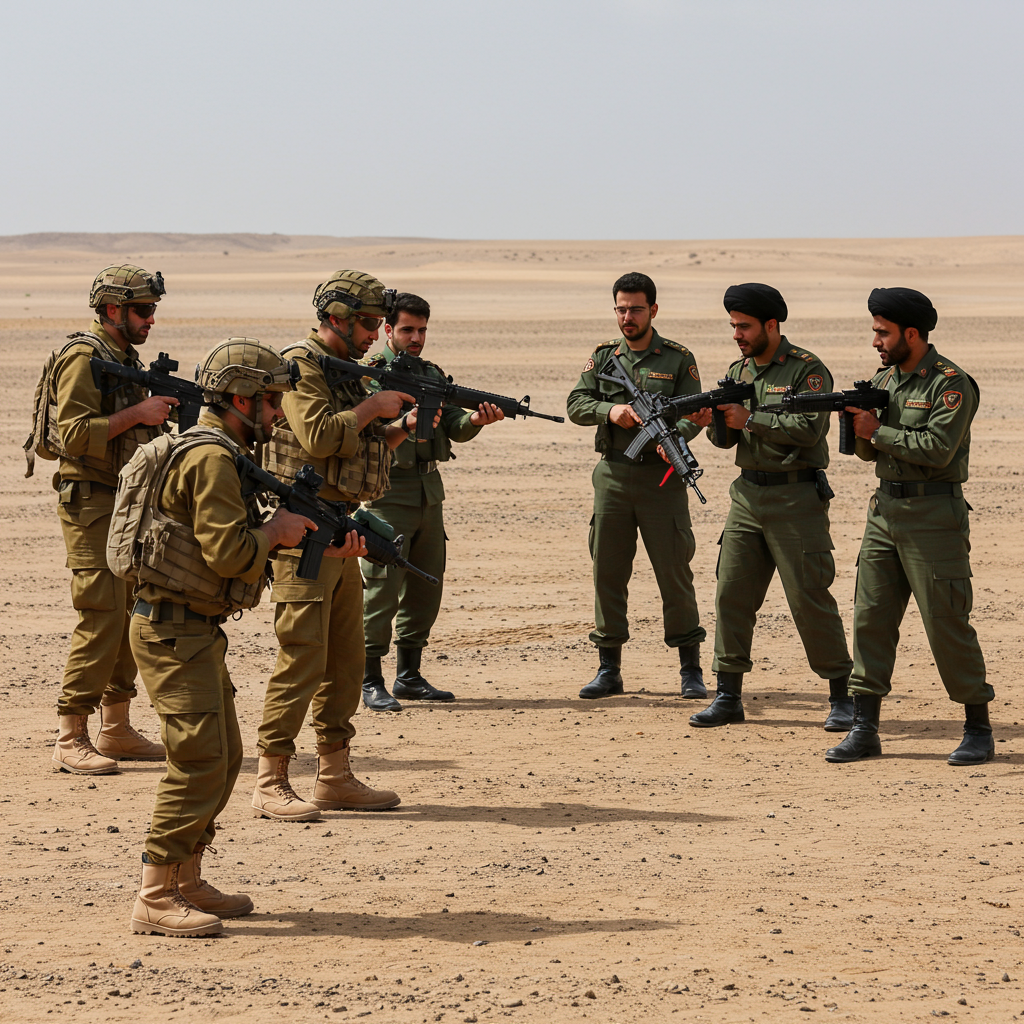Middle East Tensions Mount as Israel Claims Killing of Two Senior Iranian Revolutionary Guard Leaders
In a significant development amid escalating hostilities, Israel’s military announced it has killed two high-ranking commanders from the Iranian Revolutionary Guard Corps (IRGC) Quds Force, the elite overseas arm responsible for projecting Iran’s influence and supporting regional proxies. The claimed killings occurred in separate strikes inside Iran, adding another layer of intensity to the already volatile conflict between the two regional adversaries.
Key Figures Targeted
According to statements from Israeli officials, the two commanders killed were:
Saeed Izadi: A veteran commander identified as the head of the Quds Force’s Palestine Corps. Israeli Defense Minister Israel Katz stated Izadi was killed in a strike on an apartment in Iran’s Qom province. Israel alleged that Izadi played a key role in financing and arming Palestinian groups, including Hamas, and was linked to orchestrating support for attacks against Israel. He had previously been sanctioned by the US and UK for ties to Hamas and Palestinian Islamic Jihad. Reports suggest Izadi had survived a previous strike in Damascus in April 2024.
Benham Shariyari: Identified by the Israeli military as the head of the Quds Force’s Weapons Transfer Unit (Unit 190). Israel claimed Shariyari was killed during an overnight strike on his vehicle in western Tehran. The IDF asserted that Shariyari was responsible for facilitating weapons transfers from Iran to its allied groups across the Middle East for years, including supplying missiles and rockets launched at Israel by Hezbollah, Hamas, and Yemen’s Houthi rebels.
IDF Chief of Staff Eyal Zamir hailed Izadi’s death as a “major intelligence and operational achievement,” stating that the commander had “the blood of thousands of Israelis on his hands” and his elimination contributes to a “safer” Middle East.
Escalating Conflict Context
These targeted killings come as Israel and Iran are engaged in a direct exchange of strikes that began in mid-June. The conflict reportedly escalated following Israeli operations, dubbed “Operation Rising Lion,” targeting Iranian nuclear and military sites. Iran responded with “True Promise 3,” launching ballistic missiles and drones at Israel. These exchanges have continued for days, with both sides reporting casualties and significant damage.
Israeli military officials claim success in initial strikes, reporting the deaths of several top Iranian military figures and hitting numerous targets, including destroying a significant number of surface-to-surface missile launchers across Iran. They also report a high success rate in intercepting Iranian drones. However, Iranian drones have reportedly penetrated Israeli air defenses, striking targets in both northern and southern Israel.
Impact and Casualties on the Ground
The conflict has resulted in significant casualties in Iran. Various reports from Iranian sources and human rights groups indicate hundreds killed, including both military personnel and civilians, and thousands wounded. Other Iranian personnel, including a nuclear scientist and air defense officers, are also reported among the deceased from recent strikes.
On the Israeli side, reports indicate deaths from Iranian attacks, including a missile hitting a hospital in southern Israel, though Iran claimed the intended target was an adjacent military facility.
Nuclear Program Concerns and Diplomacy
The escalating military actions are taking place against a backdrop of international concern over Iran’s nuclear program. The IAEA has expressed worry over Iran’s production and accumulation of highly enriched uranium, particularly at the underground Fordow facility, which the US views as inconsistent with a peaceful program. Israel justifies its strikes, in part, by asserting that Iran is nearing the capability to produce nuclear weapons rapidly, a claim Iran denies, maintaining its program is solely for peaceful purposes.
Diplomatic efforts are underway, with European powers like France and the UK engaging with Iranian officials, urging a return to nuclear negotiations. However, Iran’s Foreign Minister has stated that negotiations with the US are not possible while Israel’s strikes continue, though he affirmed Iran’s readiness for a diplomatic resolution to its nuclear program if aggression ceases.
Potential US Involvement and Regional Implications
The situation is further complicated by the potential for direct US involvement. US President Donald Trump is reportedly considering joining Israel’s campaign against Iranian sites, though he initially delayed such a move to allow for a potential diplomatic window. Iran has issued stern warnings to the US, stating that involvement in the conflict would be “very, very dangerous.”
The escalating conflict has also raised regional concerns. Gulf Cooperation Council ambassadors have met with the head of the UN nuclear watchdog to express concerns about the safety of nuclear facilities near their countries amidst the hostilities. Other developments include the deployment of US strategic bombers and arrests in Cyprus of individuals with alleged IRGC ties on terror-related suspicions. Turkish President Erdogan has criticized the Israeli attacks, viewing them as attempts to sabotage potential nuclear talks.
As tensions remain critically high, the claimed killing of these two senior commanders underscores the deep penetration of Israeli intelligence and military capabilities inside Iran and signals a continued Israeli strategy targeting key figures within Iran’s security establishment amidst the broadening conflict.


